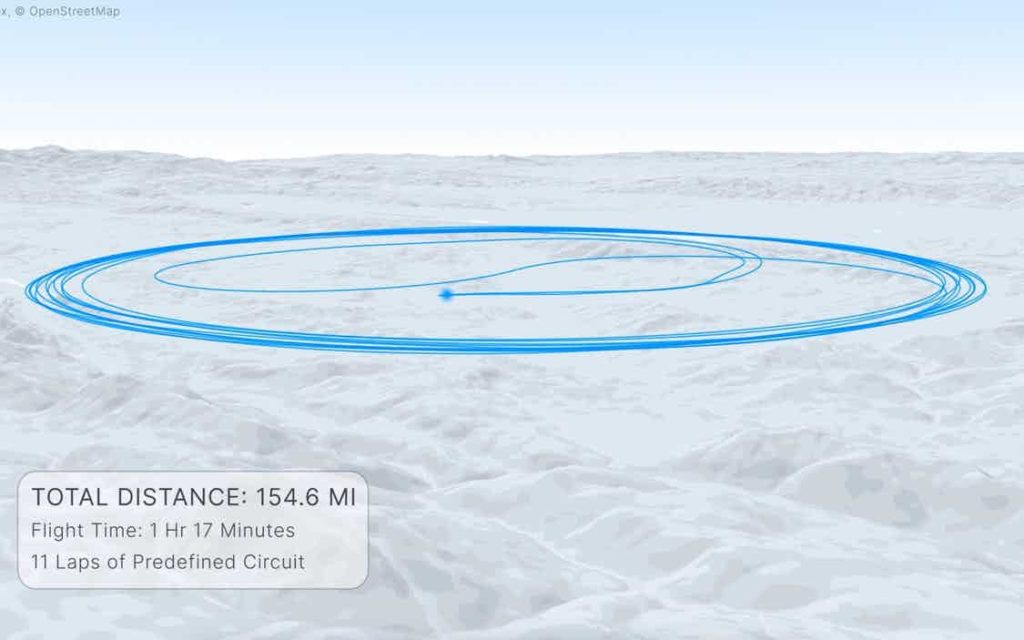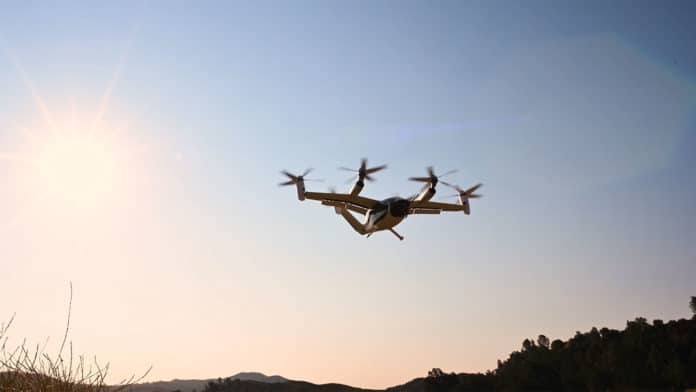Electric air taxis aren’t common yet, but many startups are trying to change that. One such startup is Northern California’s Joby Aviation, which posted a video demonstrating how its full-sized eVTOL aircraft flown a new record distance on a single battery charge. The all-electric air taxi prototype covered more than 150 miles on a single charge, including vertical take-off and landing.
The flight was completed at Joby’s Electric Flight Base in Big Sur, California, earlier this month as part of the company’s ongoing flight test campaign. Remote-piloted from the ground by the company’s Chief Test Pilot Justin Paines, the aircraft took off vertically before transitioning to forward flight and completing 11 laps of a predefined circuit. After more than 1 hour and 17 minutes in the air, the aircraft landed vertically, having covered a total distance of 154.6 statute miles (249 km).
It doesn’t look very impressive, but it’s actually one of the longest flights ever by an electric plane. It is also the first step towards establishing a convenient, emission-free air travel network.

“While we still have plenty more testing to do, achieving this milestone is an important validation of our technology, and I’m incredibly proud to have played a small part in what is, to our knowledge, the longest all-electric eVTOL flight performed to date,” said Justin Paines.
The company says it has achieved what many thought was impossible using today’s commercially available lithium-ion batteries. Joby selected an 811 NMC cathode and a graphite anode cell to deliver the optimal trade-off between the specific energy required to fly the aircraft 150 miles, the specific power to take-off and land vertically, and the cycle life to deliver an affordable service. After lab testing, the developers believe that this battery is capable of more than 10,000 of our expected nominal flight cycles.
“Since the day I joined Joby four years ago, we’ve worked hard to maximize the energy efficiency of this aircraft and prove what we have always known to be possible with today’s battery technology,” said Jon Wagner, Head of Powertrain and Electronics, who previously led battery engineering at Tesla. “With the right cell chemistry and a lot of hard work across the entire engineering team, we’ve been able to create a remarkably efficient aircraft that can make the most of today’s commercially available batteries.“
If all goes well, Joby’s aircraft is expected to start commercial passenger service in 2024, transporting a pilot and four passengers at speeds of up to 200 mph (322 km/h).
